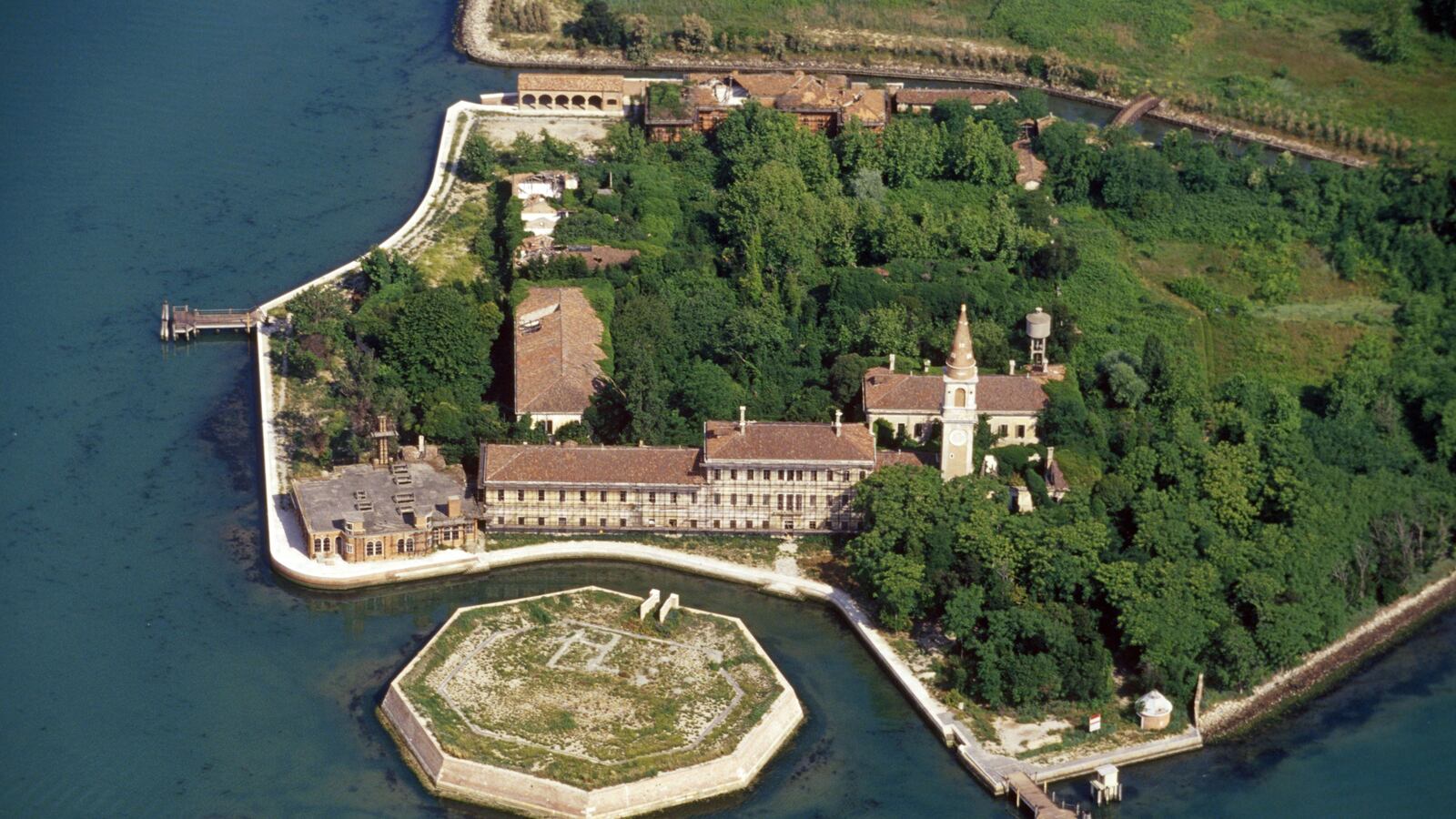How much is a little piece of Hell worth? We might just find out on May 7, when bidding opens for the Venetian Isola di Poveglia, arguably the most haunted island in the world.

The 17-acre parcel of land, which has been abandoned since 1979 when the last potential buyer reportedly visited just once and left in the middle of the night, has what one might call a dark past. Folklore largely shapes the island’s history, and it is hard to separate the truth from much of what is undoubtedly just local lagoon legend. Some of the best stories about the island are colorful indeed, and not exactly the type of thing one puts on a real estate advertisement, which may be why the island has been so hard to sell. As they say, don’t let the facts get in the way of a good story.
What is true about the island is that it was twice a quarantine posting where plague victims were shuttered up and left to die, first in the 1700s and again in the 1800s. Infected ships were docked and left to rot. The victims’ bodies were burned in piles all over the island, and some Venetians still call an unpleasant odor a “Poveglia draft,” referring to the legend of the stench of burning carcasses wafting across the lagoon.
And then there is the supposed fact that the island’s thick, dark, sticky soil is reportedly made up of more than 50 percent human remains from the victims who were burned there. There are no official tests to back this up, of course, and however moribund it may sound, it does somehow seem to help the vineyards, which produce fine wine, though mostly for export since locals “know better” than to drink haunted “spirits.”
Another favorite Proveglia story is how, in the 1920s, the island housed an asylum for the mentally deranged. The island’s 160,000-plus plague victims had all apparently returned in the form of ghosts, which did little to help calm the mentally ill. But it did give researchers plenty of human specimens to study as they looked for a “cure” for mental illness. Doctors from across Europe supposedly had license to come and try out experimental surgeries from lobotomies to literal brain drains using crude instruments like hand drills and butcher hooks, according to the legend. When the asylum’s head doctor started seeing the ghosts too, he supposedly jumped from the bell tower to do himself in. According to a nurse who watched the event, but who has never been quoted by name, the evil doctor survived the fall, but was enveloped by a “thick white mist” that suffocated him.
There is also the story of how local fishermen avoid the island out of fear they’ll catch the bones of the dead in their nets. Never mind the actual fact that many of these same fishermen winter their boats on the island’s abandoned wharf to avoid mooring fees on the more expensive inhabited islands nearby. The island is strictly off-limits to tourists, not because it is haunted, but because it is private property.
Access is granted, for a price. The government, which is the island’s caretaker, occasionally licenses the property for cinematic purposes. Skeptics need only watch the “Ghost Adventures” episode filmed on the island, which is, indeed, creepy, especially when one of the hosts is momentarily possessed by a demon.
Another convincing look at just how evil the island is an episode of ”Scariest Places on Earth” narrated in a childlike Poltergeist voice, in which a local resident says “it is almost as if the island itself has become a living, breathing corpse.” Again, not exactly ad copy that will help sell the island.
But perhaps the real reason the island remains so haunted is that Venetians fear that whoever buys it will turn it into a resort that will bring even more tourists to the already packed lagoon. Keeping the supernatural legends alive undoubtedly has fringe benefits. Proveglia is being sold as part of a package of 148 properties Italy wants to unload to help raise more than half a billion dollars. Proveglia, however, is the only property on the list that is being leased, not sold. The brave owners will have a 99-year lease with an option to sell it back.




